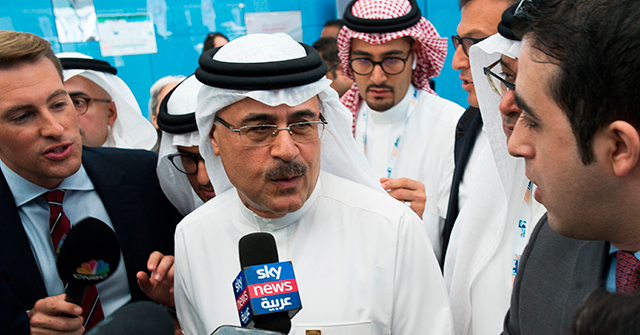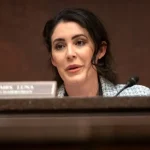

An ESG loophole led investors to pile billions of dollars into Saudi Aramco, the world’s largest oil company, whose chief executive has criticized ESG investing.
Bloomberg reported that Saudi Aramco has become an unlikely beneficiary of anti-climate change investing funds.
Amin Nasser, the chief executive of Saudi Aramco, said that ESG policies have an “automatic bias against any all conventional energy projects ” that would lead to global problems surrounding energy affordability and energy security.
Bloomberg explained:
The unlikely tie-up between Aramco and ESG began with the creation of two subsidiaries — the Aramco Oil Pipelines Company and the Aramco Gas Pipelines Company. Aramco sold 49% of the shares in each unit to consortiums led by EIG Global Energy Partners LLC and BlackRock Inc., respectively. These investors used bridge loans from banks to fund those transactions.
In order to generate cash to repay the bank loans, the EIG and BlackRock consortiums created two special purpose vehicles: EIG Pearl Holdings and GreenSaif Pipelines Bidco, both registered at the same Luxembourg address. These SPVs then sold bonds, which, since they had no direct links to the fossil-fuel industry, ended up getting an above-average score in a widely-used JPMorgan Chase & Co. sustainability screening based on third-party ESG scores.
The bonds made it into JP Morgan’s ESG indexes, and investors in the SPV bonds include funds managed by UBS Group AG, Legal & General Investment Management, and the investment arm of HSBC Holding Plc.
Ulf Erlandsson, CEO of the Anthropocene Income Institute, said that these complex financial structures complicate investing in purportedly climate-friendly funds.
“Some ESG investors have invested in these package deals, even though it seems unlikely that they would have bought the oil and gas companies’ bonds on a stand-alone basis,” Erlandsson explained.
Maria Lozovik, a former Bank of America investment banking veteran, said that the ESG rating calculation methods are “often not transparent and face data gaps, which have to be filled by estimates.” She called for investors to practice due diligence.
Laura Cuvelier, an activist at the environmental nonprofit Reclaim Finance, said, “It’s a huge loophole in how these ESG bond indexes are built. It’s a real problem that entities are included in such products that have close links to Saudi Aramco.”
BlackRock CEO Larry Fink said he is no longer using the term “ESG,” lamenting it has become politicized. One report suggested that many S&P 500 executives are no longer using ESG during corporate conference calls during the first quarter earnings season.
Sean Moran is a policy reporter for Breitbart News. Follow him on Twitter @SeanMoran3.





